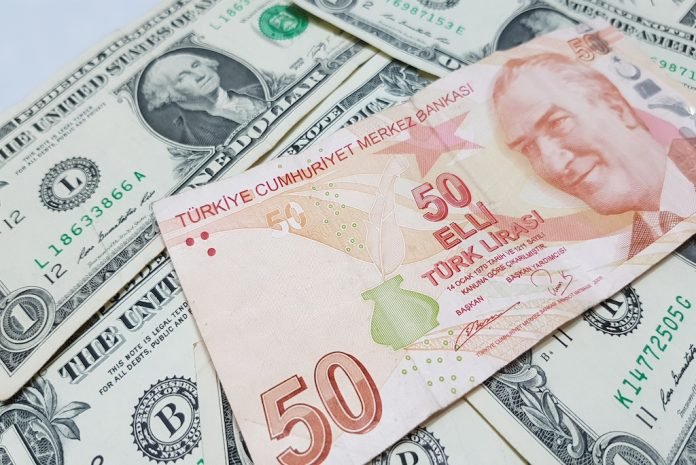Berat Albayrak, Turkey’s treasury and finance minister and son-in-law of Turkish President Recep Tayyip Erdoğan, claimed on Tuesday that an economic attack targeting the country was planned in a foreign capital, the Evrensel daily reported.
“The attack of August 10 was masterminded in the capital city of a foreign country. With the measures we took, those [who want to hurt Turkey] were disappointed,” Albayrak said during a speech at parliament. He argued that the Turkish economy had begun to normalize starting in October.
Meanwhile, a total of 46,48 percent of Turks believe that foreign powers launched an economic attack against the country, while 57,89 percent think that Turkey has been struggling with an economic crisis because of erroneous policies, according to a recent survey conducted by the Mediar polling company.
A full 77,86 percent of the public, however, admits the existence of an economic crisis, despite President Erdoğan’s remarks denying it. “What we have recently been experiencing is not a crisis, but rather a manipulation coming from abroad. The last two crises arose from domestic factors; today, however, the situation is different,” Erdoğan said on Sept. 13.
However, worrying signs continued as 10 more Turkish companies joined the thousands to have filed for bankruptcy this week.
One of these, Bilin Logistics, should have been celebrating this week after the soft opening of Istanbul’s third airport on Monday. Bilin is one of six companies sharing a 25-year, 250 million euro contract to service the airport. Despite picking up a lucrative piece of business, the company has been forced to file for bankruptcy, Turkish business news site Patronlar Dünyası reported.
Another of the firms to seek bankruptcy protection was Egezemin Construction, which is known for its large-scale projects in Turkey’s second biggest city, İzmir. Egezemin was reportedly one of five construction companies based in İzmir that have recently filed for bankruptcy.
In fact, of the more than 3,000 Turkish firms to have filed for bankruptcy this year, 75 percent are construction companies. The booming construction sector has been a feature of Justice and Development Party (AKP) rule that has helped keep the party in power since 2002; this year, however, severe problems have hit the economy, with the construction sector among the hardest hit.
High inflation and interest rates have discouraged buyers from the housing market, while heavy losses in the lira’s value have made it much more difficult for companies to repay loans taken out in foreign currencies.
The Turkish lira had been in free fall the week of Aug. 10 as it plunged to 7,20 against the US dollar on Aug. 12. As of Tuesday, the lira stood at 5,50 to the dollar.
The country has been struggling with a currency crisis since May when President Erdoğan held meetings with global money managers in London stating that he intended to tighten his grip on the economy and keep interest rates low.
After the presidential election on June 24, the lira again lost value when Erdoğan appointed his son-in-law Albayrak as the economy chief. Another blow to the Turkish lira stemmed from US sanctions and tariffs on Turkey after a court decision in July to put an American pastor under house arrest after almost two years in pretrial detention on terrorism charges rather than freeing him as demanded by the US administration.
The lira has lost more than 40 percent of its value to the dollar since the beginning of the year, causing inflation to hit a record annualized high of 24,52 percent in October. The central bank hiked its interest rates to 24 percent, making Turkey the second highest interest-rate-offering country in the world. (SCF with turkishminute.com)















